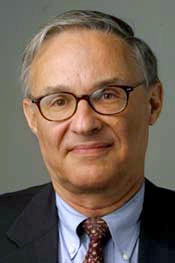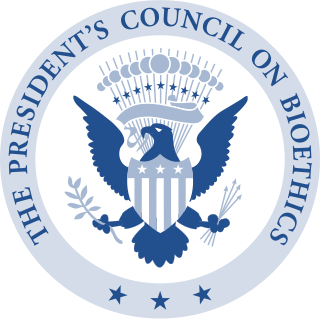Related Research Articles

Francis Yoshihiro Fukuyama is an American political scientist, political economist, international relations scholar, and writer.

Charles Louis de Secondat, baron de La Brède et de Montesquieu, generally referred to as simply Montesquieu, was a French judge, man of letters, historian, and political philosopher.

Antoine Louis Claude Destutt, comte de Tracy was a French Enlightenment aristocrat and philosopher who coined the term "ideology".

Leon Richard Kass is an American physician, scientist, educator, and public intellectual. Kass is best known as a proponent of liberal arts education via the "Great Books," as a critic of human cloning, life extension, euthanasia and embryo research, and for his tenure as chairman of the President's Council on Bioethics from 2001 to 2005. Although Kass is often referred to as a bioethicist, he eschews the term and refers to himself as "an old-fashioned humanist. A humanist is concerned broadly with all aspects of human life, not just the ethical."

Thomas James DiLorenzo is an American author and former university economics professor who is the President of the Ludwig von Mises Institute. He has written books denouncing President Abraham Lincoln and is well known among economists for his work chronicling the history of antitrust policy in the United States.

The President's Council on Bioethics (PCBE) was a group of individuals appointed by United States President George W. Bush to advise his administration on bioethics. Established on November 28, 2001, by Executive Order 13237, the council was directed to "advise the President on bioethical issues that may emerge as a consequence of advances in biomedical science and technology". It succeeded and largely replaced the National Bioethics Advisory Commission, appointed by President Bill Clinton in 1996, which expired in 2001.

Persian Letters is a literary work, published in 1721, by Charles de Secondat, baron de Montesquieu, recounting the experiences of two fictional Persian noblemen, Usbek and Rica, who spend several years in France under Louis XIV and the Regency.
Georgetown University in Qatar (GU-Q) is a campus of Georgetown University in Education City, Doha, Qatar. It is one of Georgetown University's eleven undergraduate and graduate schools, and is supported by a partnership between Qatar Foundation and Georgetown University.
The wisdom of repugnance or appeal to disgust, also known informally as the yuck factor, is the belief that an intuitive negative response to some thing, idea, or practice should be interpreted as evidence for the intrinsically harmful or evil character of that thing. Furthermore, it refers to the notion that wisdom may manifest itself in feelings of disgust towards anything which lacks goodness or wisdom, though the feelings or the reasoning of such 'wisdom' may not be immediately explicable through reason.

Jon Ellis Meacham is an American writer, reviewer, historian and presidential biographer who is serving as the Canon Historian of the Washington National Cathedral since November 7, 2021. A former executive editor and executive vice president at Random House, he is a contributing writer to The New York Times Book Review, a contributing editor to Time magazine, and a former editor-in-chief of Newsweek. He is the author of several books. He won the 2009 Pulitzer Prize for Biography or Autobiography for American Lion: Andrew Jackson in the White House. He holds the Carolyn T. and Robert M. Rogers Endowed Chair in American Presidency at Vanderbilt University.
Mark Kuczewski is an American philosopher and bioethicist who has been a key contributor to the New Professionalism movement in medicine and medical education. In general, interest in professionalism has been widespread in medicine probably owing to the increasing regulatory and economic pressures on the practice of medicine. Many physicians have sought to identify the focal meaning of what it is to be a doctor in an effort to revitalize the profession. Kuczewski has been among a group that includes Richard and Sylvia Creuss, John Coulehan, and Matthew Wynia who see medical professionalism as including a commitment to social justice. That is, while professionalism entails such things as etiquette, communication skills, and basic medical ethics, professions are also expected to be leaders in educating the public and in advocating for the health of the public. Such leadership requires an understanding of the factors that lead some patient populations to be underserved and a commitment to bringing about social change to ameliorate these problems. The New Professionalism movement in medicine is a revival of communitarian bioethics that focus on the kinds of people and society we wish to be rather than on particular ethical questions of right and wrong. This focus on the relationship between the professional and the community can have important implications for medical education and professional development. While not eschewing case analysis and problem solving, the emphasis on the development of the person has created a renewed interest in narrative methods and reflection. Kuczewski has been an outspoken critic of efforts in medical education to focus on quantitative measures of professionalism education. He has argued that in an effort to make professionalism education “objective,” many medical educators are equating professionalism with trivial but easily measured behaviors. Kuczewski’s interest in professionalism and social justice has led him to pursue ethical issues in the interactions between medicine and recent immigrant populations. He has brought his work in communitarian and casuistic methods to bear on questions such as medical repatriation, insurance for undocumented immigrants, and the eligibility of DREAMers to become practicing physicians. His scholarship and advocacy was the catalyst for the Loyola University Chicago Stritch School of Medicine becoming the first medical school in the United States to explicitly welcome applications from DREAMers with Deferred Action for Childhood Arrivals (DACA) status. Under Kuczewski’s direction, the Neiswanger Institute for Bioethics and Health Policy at Loyola University Chicago has become a leader in educational programming to promote the relationship between medical professionalism and social justice. The Neiswanger Institute has contributed elements to the Stritch curriculum that explore the relationship between the business of medicine and social justice. The Institute also has online master of arts and doctoral programs that incorporating public health and leadership training in order to help health care professionals across the United States to promote service to the underserved. Kuczewski was elected president of the American Society for Bioethics and Humanities and served a two-year term from 2009 to 2011. The ASBH is the major professional association in the United States for individuals engaged in bioethics and medical humanities. During his term, the society aggressively began moving toward a process called Quality Attestation that will attest to the credentials and expected competence of clinical ethics consultants.
Amy Judith Kass was an American academic and a senior fellow at the Hudson Institute. She spent most of her career as a professor of classic texts in the College of the University of Chicago.

Abraham Lincoln's Lyceum Address was delivered to the Young Men's Lyceum of Springfield, Illinois on January 27, 1838, titled "The Perpetuation of Our Political Institutions". In his speech, a 28-year-old Lincoln warned that mobs or people who disrespected U.S. laws and courts could destroy the United States. He went on to say the Constitution and rule of law in the United States should be "the political religion of the nation."
Henry Shattuck Richardson is an American philosopher, author, and professor of philosophy at Georgetown University, where he is also a senior research scholar at the Kennedy Institute of Ethics.
What So Proudly We Hailed and similar phrases could refer to:

Nita Farahany is an Iranian American author and distinguished professor and scholar on the ramifications of new technology on society, law, and ethics. She currently teaches law and philosophy at Duke University where she is the Robinson O. Everett Distinguished Professor of Law & Philosophy at Duke Law School, the founding director of the Duke Initiative for Science and Society as well as a chair of the Bioethics and Science Policy MA program. She is active on many committees, councils, and other groups within the law, emerging technology, and bioethics communities with a focus on technologies that have increasing potential to have ethical and legal issues. In 2010 she was appointed by President Obama to the Presidential Commission for the Study of Bioethical Issues.
James A. Ward was an American Catholic priest and Jesuit. He taught for many years at Georgetown and at the novitiate in Frederick, Maryland, of which he twice served as rector. He then became the vice president of Georgetown and was influential in the early years of Loyola College in Maryland. From 1857 to 1860, he was the President of Saint Joseph's College. He spent his later years as socius (assistant) to the Jesuit provincial superior in New York City, and teaching.
"The Best Years" is a short story by Willa Cather, first published after her death in the collection The Old Beauty and Others in 1948. It is her final work, and was intended as a gift to her brother, Roscoe Cather, who died as it was being written. Set in Nebraska and the northeastern United States, the story takes place over twenty years, tracing the response of Lesley Ferguesson's family to her death in a snowstorm.
John Lawrence Hill is an American philosopher and law professor.
References
- ↑ Schaub, Diana J. 1959- in libraries ( WorldCat catalog).
- ↑ Political Science Archived 2008-01-17 at the Wayback Machine
- ↑ "Bioethics Research Library | Georgetown University Library". library.georgetown.edu.
- ↑ "Diana Schaub".
- ↑ "Race and Rights in American History,", http://teachingamericanhistory.org/institutes/2004/race_readings.html Archived 2011-06-30 at the Wayback Machine .
- ↑ "Intercollegiate Studies Institute - ISI Books - What So Proudly We Hail". Archived from the original on 2011-05-23. Retrieved 2011-06-15.
- ↑ "America at the Bat". www.nationalaffairs.com.
- ↑ "Supreme Court TV?". Archived from the original on September 26, 2012.
- ↑ "Bioethics and the Constitution". www.nationalaffairs.com.
- ↑ "Diana Schaub". Archived from the original on 2011-10-27. Retrieved 2011-06-15.